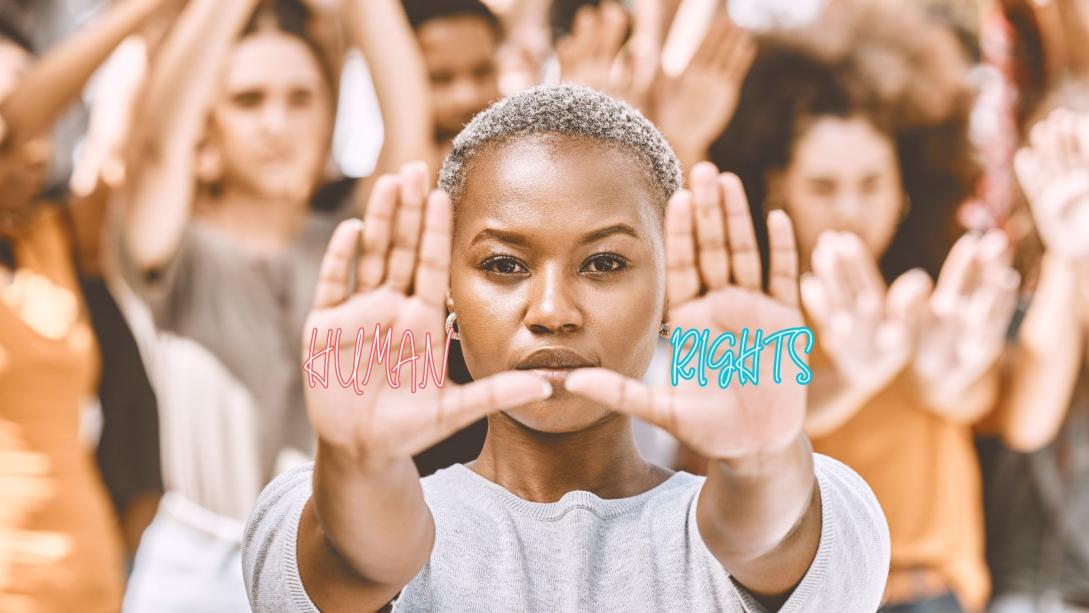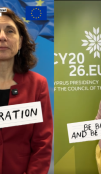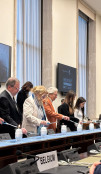60th session of the Human Rights Council: Team Europe Delivers on Key Human Rights Priorities

The EU and its Member States, united as Team Europe, played a leading role in defending and advancing universal human rights amidst a global context marked by continued instability, and grave human rights violations and abuses around the world.
Through close cooperation with cross-regional partners and civil society organisations, the EU promoted a multilateral, principled and inclusive approach to human rights. This session marked progress on several important country situations and thematic issues — including two adopted EU-led resolutions:
Strengthening Accountability in Afghanistan
The Human Rights Council adopted by consensus the EU-led annual resolution on the human rights situation in Afghanistan. This year’s resolution includes a significant new element: the establishment of an independent investigative mechanism to address impunity and support future accountability efforts.
The mechanism will preserve testimonies and document violations and abuses, helping to support victims and lay the groundwork for future justice processes. It will take a gender-responsive approach. Importantly, it will work in complementarity with existing national and international mechanisms.
This initiative sends the message that the international community recognises the gravity of the situation in Afghanistan, and that the Human Rights Council supports accountability and the rights of all Afghans.
Continued Engagement in Burundi
The EU also led the successful renewal of the mandate of the Special Rapporteur on the human rights situation in Burundi. The country continues to face a volatile environment, with widespread impunity, persistent restrictions on civic space and structural challenges to economic and social rights.
With an electoral cycle underway and presidential elections approaching in 2027, independent monitoring remains vital. The resolution reaffirms the need for continued attention by the Council and international partners to the human rights situation on the ground, as well as support to national and regional efforts towards lasting reform.
Human rights across the world
This session also saw the adoption of a resolution on the human rights situation in Russia, which renews the mandate of the Special Rapporteur. Her work is key to shedding light on the deteriorating human rights situation in the country. Her latest report outlined that torture and other cruel, inhuman or degrading treatment or punishment are used as a state-sanctioned tools for oppression in Russia, including against prisoners of war and civilian detainees.
At HRC60 we also continued to condemn Russia’s war of aggression against Ukraine, with increasing number of civilians killed and injured. According to the Commission of Inquiry for Ukraine, Russian armed forces have committed crimes against humanity, including murder, and war crimes, including deliberate targeting of civilians.
Importantly, the Council renewed the mandate of the Fact Finding Mission on Sudan, whose mandate is crucial for the investigation and evidence collection of all human rights violations and abuses committed in Sudan with a view of ending impunity, as there are no credible national mechanisms to do this.
Furthermore, the EU actively supported a resolution on promoting reconciliation and accountability in Sri Lanka. We also supported a renewed call to operationalise swiftly a Commission of Inquiry to ensure accountability for grave violations of human rights in Eastern DR Congo.
We welcome the adoption of a resolution on Libya, and commend Libya for presenting this resolution itself, thus extending the OHCHR’s reporting and technical assistance mandate. We also supported a resolution presented by Georgia, which demands immediate and unimpeded access for the OHCHR and international and regional human rights mechanisms to the Georgian regions of Abkhazia and Tskhinvali/South Ossetia.
We also addressed at HRC60 the human rights situation in Belarus, the Occupied Palestinian Territory, North Korea, Venezuela, and Yemen.
Convened by OIC and Gulf countries, this Council also held an Urgent Debate “to discuss the recent military aggression launched by Israel against the State of Qatar”. The EU expresses its condemnation of the airstrikes on 9 September in Doha. The EU underlined its support for the sovereignty and territorial integrity of Qatar, in line with the principles of the Charter of the United Nations. The EU urged all parties to refrain from any actions that jeopardise mediation channels and regional stability, and underlined its commitment to the Two-State Solution. Furthermore, at the General Debates of the Council, the EU deplored the dire humanitarian situation in Gaza, including the famine declared in parts of Gaza, and the continuously escalating violence in the West Bank. The EU once again called for an immediate ceasefire in Gaza and the unconditional release of all hostages.
In addition to these efforts, the EU also supported key thematic resolutions addressing global human rights concerns, such as the death penalty, arbitrary detention, preventable maternal mortality and morbidity, the renewal of the Special Rapporteur’s mandate on the human right to safe drinking water and sanitation, and the Special Rapporteur on the rights of Indigenous Peoples. The EU also joined an important consensual adoption of the two anti-racism resolutions, calling to make concrete global progress in the fight against racial discrimination. Similarly, the EU joined the consensus on the resolution on economic, social and cultural rights, that will strengthen the work of the OHCHR in this area.
The EU welcomed the unprecedented merger of two Special Rapporteurs into a single Special Rapporteur on combating modern slavery and trafficking in persons, which ensures that both issues to be tackled in a more coherent manner, while allowing the Council to make sorely needed efficiency gains in funding and meeting time when faced with the grave liquidity crisis.
‘We reiterate the importance of a human rights-based approach in addressing inequalities, by placing the individual as the central subject of human rights, recognising every person as a rights-holder, and States as duty-bearers. All human rights are universal, indivisible, interrelated and interdependent.’ – EU General Comment
In a Team Europe spirit, EU Member States also presented resolutions and initiatives in their national capacity, or together with other partner countries:
• Human rights in Russia
• The human rights of older persons
• Cooperation with the United Nations, its representatives and mechanisms in the field of human rights
• Question of the death penalty
• Arbitrary detention
• Preventable maternal mortality and morbidity and human rights
• The human right to safe drinking water and sanitation
• The human rights implications of drug policy
Team Europe also organised numerous side-events, highlighting key human rights issues, including the situation in Russia, Ukraine, Belarus, as well as women, peace and security, combating antisemitism, and moving away from the death penalty for children.
All EU statements at HRC60 can be found here.





